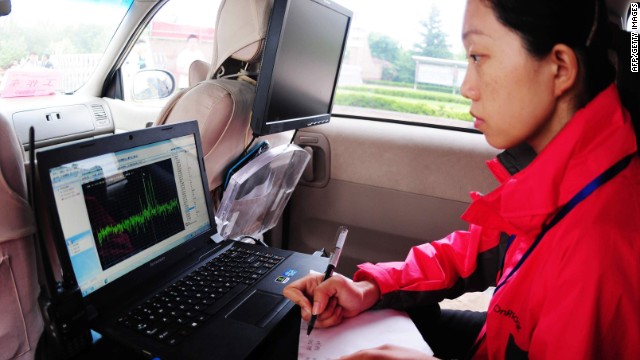From smartwatch and smartpen... to smartcheat?

It used to be as simple as folding a piece of paper up your sleeve or
writing on the inside of your wrist. But now, as students across the
world ready themselves for exam season, cheating is going high tech.
With smartwatches,
smartpens and Google glasses now on the market, the modern pupil has an
array of gadgets to trick the sharpest pair of eyes.
Educators now need to spot -- not just keep up with -- the latest tech inventions.
"I do think wearable
technology is going to be an issue," Larry Rosen, psychology professor
at California State University, told CNN. The Educational Testing
Service, or ETS, is likely to be "grappling with this for the SAT, GRE
and other standardized exams that they administer," he said.
There are "unanticipated consequences" of rules that lag behind technology, Rosen added.
Governments are starting
to respond to the high-tech threat, according to the UK Department For
Education. Schools are expected to take "appropriate action" on
cheating, it said in a statement, and report the incident to the exam
boards.
The invisible threat
But some devices are near impossible to see -- such as the so-called "invisible" Bluetooth earpieces.
They work with a tiny
microphone, which is synced to a Bluetooth cell phone. They can enable
questions, whispered from exam rooms, to be answered from someone
outside the room.
Taylor Ellis, associate dean at the University of Central Florida, heads its testing center and is familiar with the tactic.
Examiners are trained to look for suspicious behavior and "if we observe
a student waving their pen in front of the computer, or if I see them
waving their wrist close to it, these are all signs that they're
probably taking a photo of the screen," Ellis said. "That's when we
intervene."
The center is equipped with cameras so, once the exam is over, Ellis can
review the footage to pick up any suspect activity he may have missed.
"I tell my staff we can't stop cheating, but I will find out about it."
China shows way to future
China has been at the forefront of the tech cheating crackdown.
Its schools and
universities have been using technology to combat high-tech cheating for
over a year. Among other anti-cheating tactics, staff members monitor
radio signals and check students with scanners.
Such advanced technology
could, some argue, make teachers redundant. "It's hard to find a
teacher who's up on what's happening in the tech world," digital media
consultant Shelly Palmer said. "They don't know about the latest
wearable technology, you only see that in medical schools or in a
research lab."
Palmer told CNN a
complete overhaul of the education system was needed. Factoids and long
division is a wasted skill in today's society because in the future, a
child will never be without a computer, he said.
"There was a time when
you had to build a house and you needed the tools to do that, but most
of us no longer translate mechanical energy into wealth, we don't plough
the fields," Palmer added.
Palmer said children
would be better served by learning with such high-tech tools, rather
than being separated from them. These days, it's "intellectual property"
that is translated into wealth, he said.










0 comments:
Post a Comment